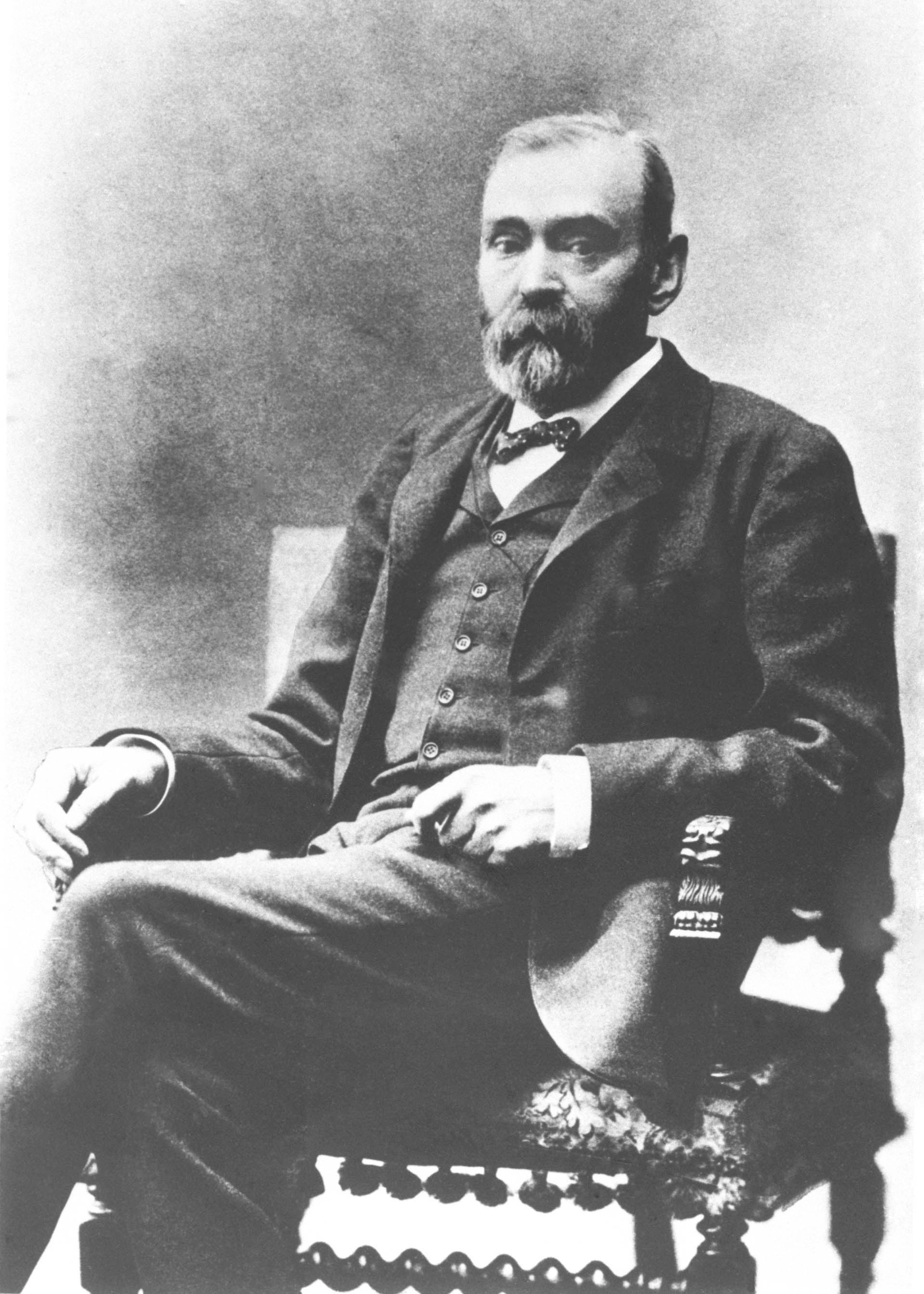Nobel's last will turns 125 years
On 27 November 1895, Alfred Bernhard Nobel signed his last will in Paris. The Swedish inventor and businessman was widely known as one of Europe’s richest men. As he was unmarried and left no children, many people tensely awaited what would happen with the fortune after his death.
When Nobel’s last will was revealed after he died in 1896, it led to disappointment and disagreement. Nobel had decided that his money should be placed in a fund, an the interest should be awarded as prizes in physics, chemistry, medicine, literature and peace.
"...to those who, during the preceding year, shall have conferred the greatest benefit on mankind."
Disappointment and dispute
Alfred Nobel’s relatives where disappointed. They did not get what they saw as their fair share of the money, and sought to have the will declared invalid. They were supported by the Swedish king Oscar II. He was also king of Norway before the union between the two countries ended in 1905, and he was angry because the peace prize was given to Norway. Alfred Nobel had decided that the peace prize was to be awarded “by a committee of five persons to be selected by the Norwegian Storting” (Parliament).
A new book about Alfred Nobel, written by the Swedish author Ingrid Carlberg, reveals that the disputes over Nobel’s last will were so strong that the implementation of his will was at risk.
“The fact that Norway was to award the peace prize was seen as a betrayal, as treason”, Carlberg says. King Oscar though that Nobel was being seduced by peace activists, especially women. The King probably had Nobel’s good friend Bertha von Suttner in mind, Carlberg believes.
The Norwegian mystery
After almost three years of negotiations, King Oscar II approved the statues of the newly established Nobel Foundation in June 1900, and in 1901, the first Nobel Prizes where awarded.
Why Nobel chose Norway to be the home of the Nobel Peace Prize is not answered in his will, and Carlberg has not found other sources where he answers this question. But there are many signs that Nobel was fond of Norway, she says. For example, he wrote a play during his last year, that he wanted to publish in Norway, to avoid “Swedish censorship and patriotism”. He was also a fan of the Norwegian writer Bjørnsterne Bjørnson. Also; Norway was a custumer of his business, as they, unlike Sweden, bought his gunpowder.
The 2020 Nobel Peace Prize and the will
On 10 December, Alfred Nobel’s death day, the Nobel Peace Prize 2020 will be awarded to the World Food Programme. The ceremony will be different this year, due to corona restrictions. The laureate this year is safely placed within the Nobel tradition, and the criteria of Alfred Nobel’s will, says Olav Njølstad, Director of the Norwegian Nobel Institute.
“Allready with the first Nobel Peace Prize in 1901, the Nobel Committee marked that certain kinds of humanitarian work is relevant to peace, when the peace activist Frédéric Passy and Henry Dunant, the founder of the Red Cross, where jointly awarded the prize. This year the Committee stated that one of reasons for awarding the prize to WFP, was it’s work for the elimination of hunger as a weapon of war”.
"and one part to the person who shall have done the most or the best work for fraternity between nations and the abolition or reduction of standing armies and the formation and spreading of peace congresses."
Share:
